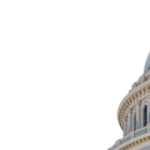The United States Senate recently passed S. 1260 – United States Innovation and Competition Act of 2021, (USICA). The bipartisan legislative provides approximately $200 billion to enhance the United States’ global research competitiveness. The legislation also supports domestic manufacturing and addresses foreign influence in research.
The Act makes provisions for the increase in federal support for research and development, authorizing approximately $120 billion between fiscal year 2022 and 2026 for activities at the National Science Foundation (NSF), the Department of Commerce (DOC), the Department of Energy (DOE), and the National Aeronautics and Space Administration (NASA). Notable provisions of the US Innovation and Competition Act include:
-
- The creation of a new Directorate of Technology and Innovation at NSF to support research and technology development.
- Authorization of $52 billion over fiscal years 2022 to 2026 for existing NSF activities.
- The establishment of a regional technology hub program at DOC to support regional economic development.
- The expansion of the DOC Manufacturing Extension Partnership with $2.4 billion in funding over fiscal years 2022 to 2026.
- The formation of a supply chain resiliency program at the DOC to work with the private sector to recommend opportunities to mitigate or address supply chain vulnerabilities in the U.S. and in allied and partner countries.
For higher education institutions, the Act is a significant investment in research and is a blueprint to support global competitiveness. The bipartisan legislation also includes a provision for the Committee on Foreign Investment in the United States (CFIUS) to review certain foreign gifts to or contracts with higher education institutions. Several other provisions are included in the legislation which aim to address policies around research security at higher education institutions.
The CITI Program is aware of the ongoing and continuing impact of undue foreign influence in research, particularly at universities, remain a concern for U.S. federal officials and university administrators. The CITI Program Undue Foreign Influence: Risks and Mitigations course explores key ethical, export, security, intellectual property, and transparency requirements related to international engagement.
The Endless Frontier Act (H.R. 2731) is currently referred to the House Committee on Science, Space, and Technology. H.R. 2731 is currently not scheduled for a vote at the time of this blog post. Other similar bills are under consideration in the US House of Representatives, such as H.R. 2225, H.R. 1852, and H.R. 2685. Additional legislation focused on strengthening U.S. research competitiveness and mitigating undue influence, such as S. 687, H.R. 1934, S. 1169, H.R. 2329, and S. 413 are also under consideration.
References
- https://www.sidley.com/insights/newsupdates/2021/06/an-overview-of-the-united-states-innovation-and-competition-act
- https://www.aamc.org/advocacy-policy/washington-highlights/senate-approves-bipartisan-research-competitiveness-bill
- https://www.lexology.com/library/detail.aspx?g=d83ce3c4-35b2-4470-ace8-e3a6ffc6d650





